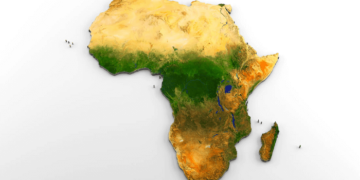Lagos, Nigeria, is often dubbed the heartbeat of African creativity, especially when it comes to fashion. Lagos Fashion Week has emerged as a significant event in Africa’s fashion calendar, showcasing an eclectic blend of traditional African aesthetics with modern style.
But how did Lagos Fashion Week start? This blog post explores the origins, evolution, and impact of Lagos Fashion Week, tracing its journey from concept to a major international fashion destination.
Birth of Lagos Fashion Week
The idea for Lagos Fashion Week began as a vision to unite and celebrate Africa’s rich textile heritage and creative prowess. Omoyemi Akerele, the founder and creative director of Lagos Fashion Week, envisioned an event that would provide a platform for African designers, models, and creatives to showcase their talent on a global stage. At the time, African fashion was thriving but had limited visibility and recognition outside the continent.
Omoyemi Akerele, a lawyer turned fashion entrepreneur, founded Style House Files in 2010, a creative development agency that focuses on the advancement of Nigeria’s fashion industry. Through Style House Files, she aimed to support and promote the business of fashion across the continent. As an extension of her work, Akerele launched Lagos Fashion Week in 2011 to bring more attention to African designers and create an annual event for showcasing their collections.
Initial challenges and breakthroughs
Just like every new venture facing challenges, Lagos Fashion Week had its own share too. Convincing global buyers, investors, and fashion enthusiasts to look to Lagos as a fashion destination was no small feat. Additionally, organizing an event of such magnitude required substantial financial backing, infrastructure, and expertise. However, Omoyemi’s dedication to raising awareness about the African fashion industry drew the attention of local and international sponsors, who slowly began to see the potential of this burgeoning market.
The first edition of Lagos Fashion Week in 2011 brought together a few pioneering designers and models. With a lineup that included Nigerian fashion houses like Maki Oh, Lisa Folawiyo, and Tiffany Amber, the event made a powerful impression, showcasing a new wave of African designers who were inspired by local cultures but were also creating trends that resonated globally. The success of this inaugural edition helped solidify the foundation of Lagos Fashion Week, turning it into an annual event.
Mission of Lagos Fashion Week
Since its inception, Lagos Fashion Week has had a clear mission: to position African fashion as a sustainable contributor to the global fashion industry. Its objectives include:
- Championing African Design: Lagos Fashion Week has always aimed to amplify the voices of African designers and highlight the continent’s unique design aesthetics.
- Promoting Ethical Fashion: With a focus on ethical practices, Lagos Fashion Week has encouraged designers to adopt sustainable methods and support the use of locally sourced fabrics and materials.
- Building an Ecosystem: Lagos Fashion Week also seeks to build a strong fashion ecosystem in Africa, encouraging collaborations, partnerships, and investments to support the industry.
- Creating Economic Opportunities: Through Lagos Fashion Week, emerging designers have gained access to training programs, workshops, and mentorships that help them develop their skills and build successful fashion brands.
Key Highlights of Lagos Fashion Week Over the Years
- Runway Shows and Presentations featuring new season collections from designers
- Fashion Focus Africa – talent discovery initiative that creates access to Fashion Focus Fund, knowledge transfer, information exchange, networking opportunities, and access to market;
- Fashion Focus Africa – talent discovery initiative that creates access to Fashion Focus Fund, knowledge transfer, information exchange, networking opportunities, and access to market;
- Fashion Business Series to facilitate conversations with key players from the Nigerian and Pan African industries and beyond, as a useful tool for exchanging ideas, networking, and developing the fashion industry.
- Green Access – Talent discovery with a vision to encourage designers to create social, economic, and environmentally sustainable fashion brands
- Visual Makers Fellowship – Created to empower budding filmmakers and photographers with workshops and masterclasses
- LagosFW Showrooms – Access to shop some of your favourite fashion brands
- After parties – an opportunity to experience Lagos’ nightlife and connect with some of Africa’s finest creatives in a relaxed environment.
Lagos Fashion Week has come a long way since its inception in 2011. Through dedication, innovation, and a commitment to showcasing African creativity, it has grown into one of the most prestigious fashion events in Africa. By providing a platform for designers to share their stories and creations with the world, Lagos Fashion Week has helped put African fashion on the global map.
As it continues to evolve, Lagos Fashion Week remains a beacon for the African fashion industry, celebrating the continent’s rich cultural heritage and inspiring a new generation of designers to dream big. From humble beginnings to global acclaim, the story of Lagos Fashion Week reflects the resilience, creativity, and boundless potential of Africa’s fashion industry.





































Discussion about this post